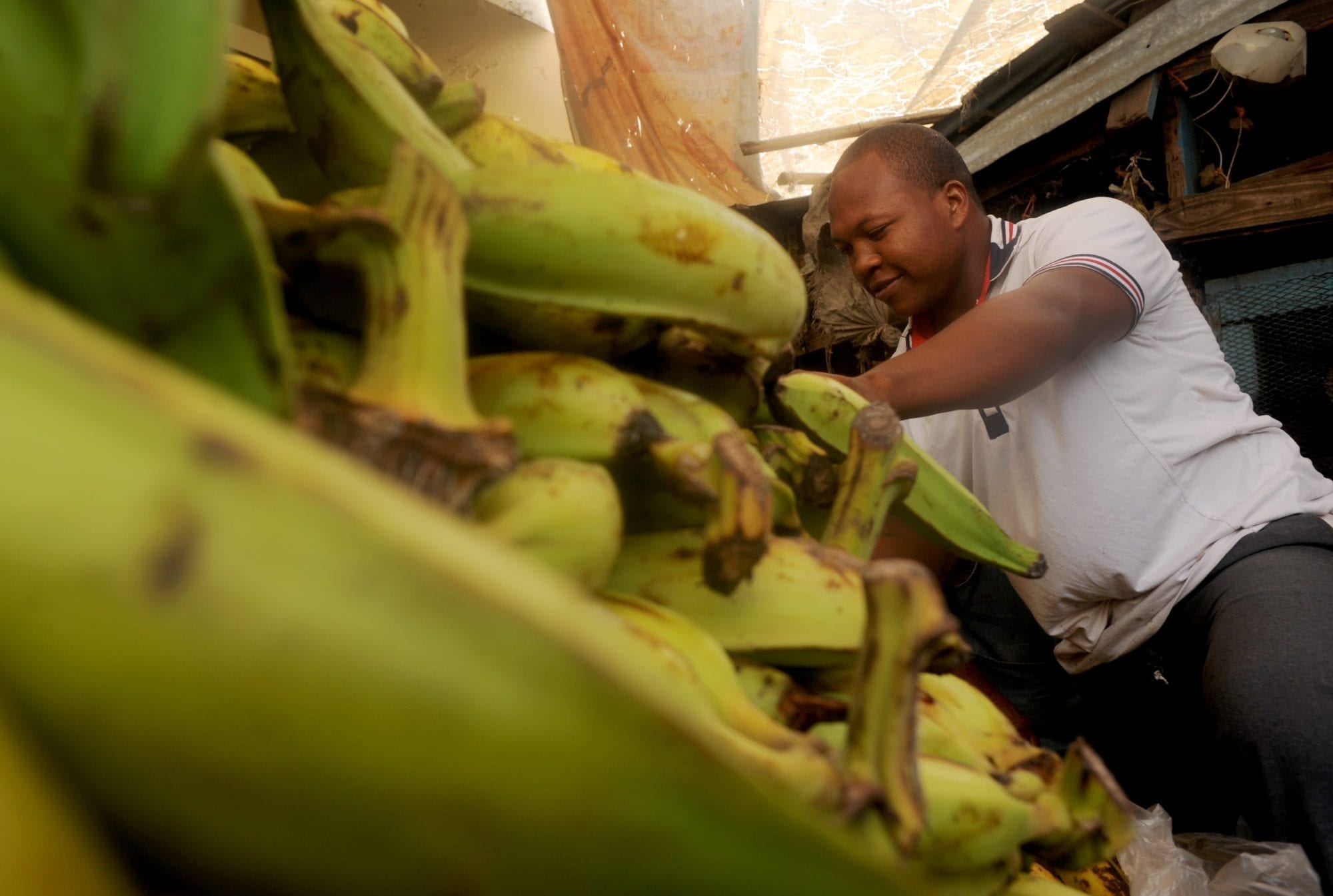
Solange Ambroise sells vegetables in the San Cristobal Municipal Market. Credit: Solidarity Center/Ricardo Rojas
Rarely do governments admit failing their citizens. However, on Friday the 193-member states of the United Nations did just that when they voted to rectify their failure to uphold the rights of workers and to ensure decent working conditions for more than half of the world’s working women and men.
By voting for an International Labor Organization (ILO) recommendation, The Transition from the Informal to the Formal Economy, the large majority of the world’s governments has done more than just pledge to provide the basics for the world most vulnerable workers—those struggling to make ends meet in the informal economy—they have begun the essential process of strengthening society by promoting worker rights.
Street vendors, home-based workers, domestic workers and day-laborers usually work “off the grid” and outside a country’s regulations and labor laws. They join subcontracted, temporary and part-time workers who subsist on the fringes of the formal economy. These jobs typically pay low wages, perpetuate worker and human rights violations, provide limited or no social benefits, and offer little access to union representation. For most of these workers, survival trumps active engagement in society’s daily undertakings.
An estimated 1.5 billion, or approximately 60 percent of the world’s workers, toil in the informal economy, according to the ILO. In some developing countries, informal jobs comprise up to 90 percent of available work, and most workers take these unstable jobs out of necessity, not by choice.
Women, migrant workers and the young are disproportionately represented in the informal economy, and often the most exploited. Their situation is exacerbated because they may be barred from joining unions, which could offer support through collective bargaining on wages and working conditions, or because unions have not been able to reach them due to the isolated and changeable nature of their job.
Informalization of work fuels global income inequality, poverty and abuse. For example, at age 22, N. Naga Durga Bhavani left her small village in India for Bahrain, where she hoped a job as a domestic worker would help pay for her young daughter’s heart surgery. But when she arrived, after paying labor recruiters the equivalent of nearly two months’ wages, she says her passport and papers were confiscated, and she was forced to work long hours, trapped in an abusive environment where she was beaten, her fingers broken. After she escaped, the Indian Embassy could not help her leave the country because she had no identification.
And the drag on society does not end with the desperate plight of workers like Bhavani. Businesses employing workers in standard employer-employee relationships find themselves at a distinct disadvantage when they compete against those chasing short-term profits by not hiring full-time workers, paying taxes and benefits, or complying with regulations and labor law. Companies that provide financial and business services miss huge swaths of potential clients whose income leaves them too poor to enter the shop door and unable to access credit.
The effects on government are even more profound. The loss of tax revenue on huge percentages of GDP in many countries is only one edge of the sword. Because workers in the informal economy usually hang from the bottom rung of the economic ladder, they are more likely to need social safety nets—the very nets their jobs do not support through tax revenue.
Friday’s vote is significant because governments, worker representatives and employer representatives, who usually operate with very different agendas, publicly acknowledged the imperative of providing all workers with rights at work, social benefits and the ability to join a union. Their acknowledgement that the current system does not work—not for working people, not for governments and not for the businesses that serve them—is an important step toward bringing millions of workers into decent jobs that comply with labor codes and allow workers to be stronger members of their society. All of us should applaud the 193 nations for not choosing failure.

